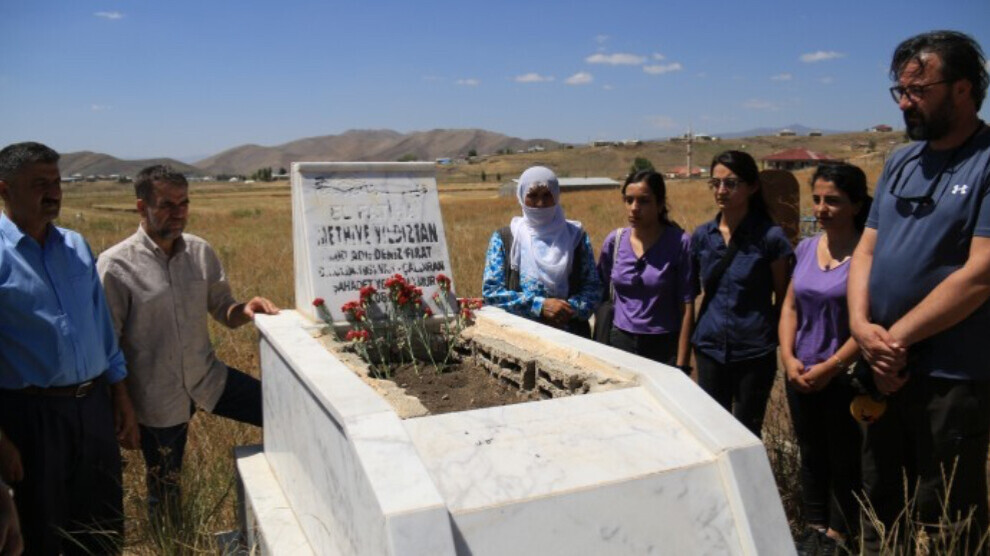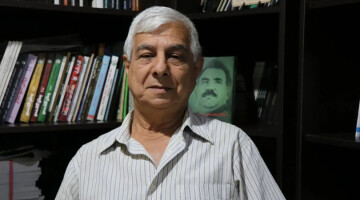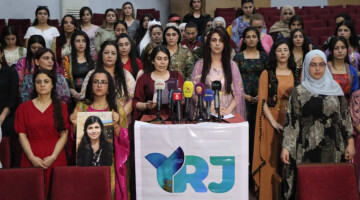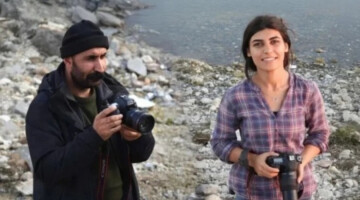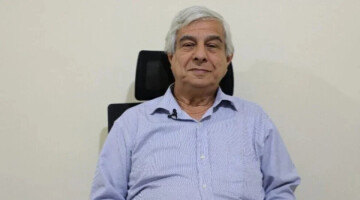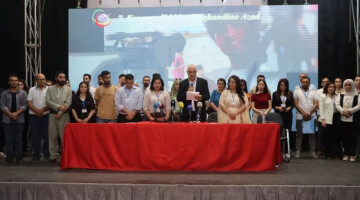Deniz Firat was commemorated at her grave in the Çaldıran district of Van province on the ninth anniversary of her death. Deniz Firat was one of the first media professionals to report on the attacks of ISIS in Kurdistan in 2014. The jihadist militia had overrun Iraq in August of that year and committed genocide in the Yazidi settlement area of Shengal. The Maxmur refugee camp, where Deniz Firat lived with her family, was also targeted at the time.
When it was decided that the camp had to be evacuated to protect the population, the journalist stayed on site. With her camera, she documented the events for ANF and the Kurdish television stations Stêrk TV and Ronahî TV and informed the public. On 8 August 2014, Deniz Firat reported for the last time by telephone from the Maxmur front before she was hit by a shell splinter.
The Mesopotamian Women Journalists' Platform (MKGP) and the Dicle Fırat Journalists' Association (DFG) organized the commemoration at the cemetery in the village of Xecxatûn. After a minute of silence, those present spoke a few words of remembrance. Rojda Aydın, a correspondent for the all-female news agency JinNews, called Deniz Firat a "symbol" of the free Kurdish press. "The legacy she left us shows us our way forward," she said.
DFG Co-Chair Serdar Altan paid tribute to Deniz Firat as a courageous and committed woman who shed light on the darkness of ISIS’ crimes. "It is only thanks to people like her that the resistance could be maintained until today. For the sake of truth, she refused to put down her camera. She set an example - not only for us, but for all media professionals worldwide," Altan said.
Deniz Firat's brother Seyat Yıldıztan gave the last speech and paid tribute to his sister as a journalist representing resistance in the tradition of the Kurdish press. "She was a distinctive person who became a role model for others. Our younger sister took Deniz's pen from the ground and continues her work to this day. The rest of the family also protects and supports the values Deniz fought for. Deniz was a resister who did not bow to oppression. A dignified commemoration requires continuing her struggle."

